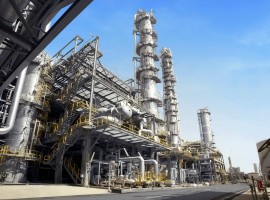Egypt has taken prominent measures to convert vehicles into compressed natural gas (CNG) ones. These steps include the timely presidential initiative launched in January 2021 to increase the number of vehicles using CNG as fuel. The country provides CNG through compressing natural gas to be lower than its standard atmosphere volume pressure by less than 1%. Afterward, the produced CNG is stored at a pressure of 24,821 Kilopascals (kPa), according to the Alternative Fuels Data Center (AFDC). Through the pressuring process, Egypt provides its people with an alternative fuel that will enhance the economy and surrounding environment.
Economic, Environment Friendly Future
Egypt is now self-sufficient in natural gas production. The country’s natural gas production capacity reached 7 billion cubic feet per day (7bcf/d). Hence, using CNG will save the cost of importing petroleum. Using CNG to fuel cars reduces fuel cost by 50%, the Egyptian Cabinet reported. In addition, fueling cars with gasoline costs twice as much as CNG. Therefore, UN-Habitat estimated that commercial cars, like taxis, could recover the cost of converting to CNG within approximately six months.
Meanwhile, using CNG to fuel vehicles is more financially convenient as the new fuel is better for engines, which reduces the money spent on maintenance. Moreover, CNG engines have a 90% lower sound pressure compared to diesel fuel engines, in addition to “less odorant and evaporative emissions,” according to SoCalGas.
CNG is an environmental-friendly fuel alternative that reduces air pollution. “Compared with petroleum-based fuels, it reduces nitrogen oxide emissions by 30-60% and carbon-monoxide emissions by up to 97%,” Abdelaziz Khlaifat, Professor of Petroleum Engineering, told the American University in Cairo (AUC). Moreover, using CNG-fueled cars emits 10% fewer greenhouse emissions and almost cuts 50% of other harmful emissions, according to Fuel Economy.
Among the 49 countries implementing strategies for cleaner fuel, Egypt ranks number 8, according to UN-Habitant. The government is cooperating with the private sector to boost the number of bi-fueled cars as well as CNG fueled cars.
Egypt CNG-Fueled Vehicles Initiative
The idea of using CNG in transportation is not new for Egypt. The North African country embraced the idea of fuelling vehicles with the use of natural gas in 1992. At the end of 1994, the first company to work in vehicles conversion was established. Accordingly, 30 CNG-fueled busses and 150 bi-fuel vehicles were introduced, according to UN-Habitat.
In recent years, Egypt started to exert effort to encourage CNG usage as fuel. Therefore, it is establishing CNG conversion and fuelling stations to serve the gas-fueled cars. An Egyptian Natural Gas Holding Company (EGAS)’s report showed that in the fiscal year 2019/20, the number of vehicles fueled by CNG reached 318,300, and the number of conversion centers reached 78, while the country successfully had a total of 206 gas fueling stations across the governorates.
Egypt lays great importance on the CNG initiative. The country plans to further raise CNG-fueled cars numbers in Egypt by 260,000 in the next three years, from the current 330,000 vehicles Tarek El Molla, Minister of Petroleum and Mineral Resources, said during ADIPEC 2020. Accordingly, the public treasury spent around EGP 56.6 million since April, on the implementation of the initiative of converting the vehicles to run on natural gas, Minister of Finance, Mohamed Maait, declared.
Thanks to the establishment of many fueling stations, and the credit facilities provided by the country, the people are encouraged to apply for the conversion of their automobiles and taxis. Hence, the number of personal cars and taxis meeting the CNG initiative standards reached 44,094 vehicles, Maait pointed out.
With the efforts exerted to avail CNG for all citizens, the converted cars will face no problems in finding fuel. Accordingly, the Egyptian environment will have fewer CO2 emissions. The CNG-fueled cars will further have a positive economic impact on both the country and its citizens, thanks to the self-sufficiency in natural gas production.








